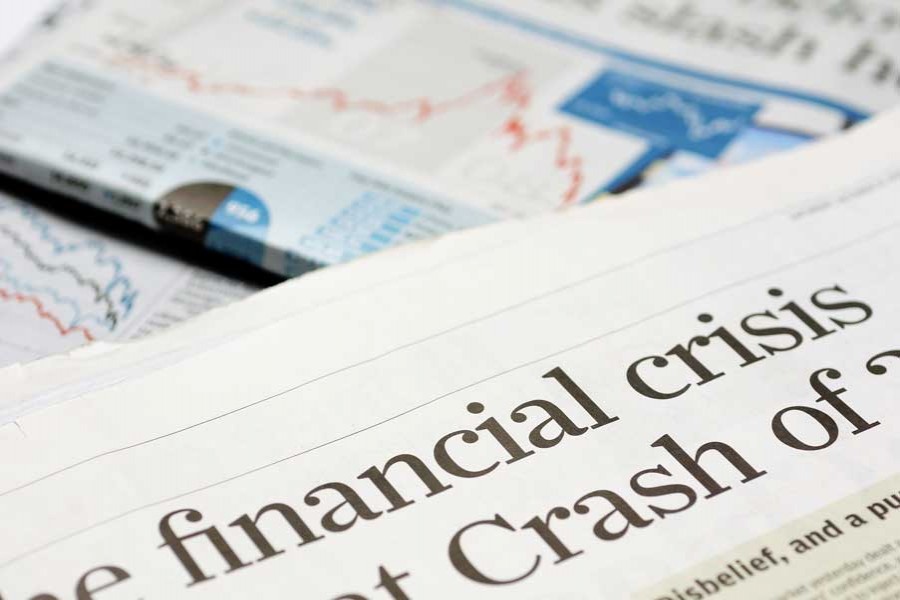
Published :
Updated :

Prolonged covid-19 pandemic followed by the prevailing war in Ukraine has led to severe economic crisis all over the world. Spiraling price hike of fuel, food, medicine and other essential items of daily necessities leading to increase in inflation rate, thereby cost of living, is poised to put people of low and middle income families, of the least developed and developing countries in particular, in dire strait.
The Russian invasion of Ukraine followed by the stringent economic sanctions imposed by the USA and its allies on Russia has resulted in abnormal rise in sea and air freight thereby disrupting the global supply chain. Severe draughts and other erratic climatic behaviour have seriously affected food production around the world. The war in Ukraine followed by disruption of supply chain has only added fuel to the fire.
No wonder, the United Nations and its front organisations like World Bank, Food and Agricultural organisation (FAO) and World Food Programme (WFP) have warned of not only severe economic depression but also acute food shortage leading to unprecedented human tragedy of hunger and famine in many countries around the world unless every possible measure is taken by the world community at large to stop the war in Ukraine and save the humanity from colossal disaster.
At the moment the major challenge for the world leaders is to stem further downslide of world economy which is already in a precarious situation due to the corona pandemic. They could hardly revive the economy to even its pre-pandemic level before they faced the consequence of the Russian Invasion of Ukraine. Shipping and air business have suffered the worst setback. So has the tourism industry.
Abnormal rise of fuel cost in the recent months has not only increased production cost of almost every item, be it agricultural or industrial. It has also pushed sea, air and other transport costs to almost double, making things scarce and so unaffordably costlier.
The continuation of the war in Ukraine is only going to worsen the already shattered economy. Even the rich and highly developed countries like the USA, Canada, Japan, Australia, the UK, and the West European countries, let alone the third world countries, have already started feeling the economic stigma of the war. Cost of living of these countries has increased by at least 30 per cent, if not more, in the recent days. The cost of fuel for transport vehicles has almost doubled.
Situation in the third world countries is much worse. Sri Lanka, a small island-state with a population of less than 25 million people, is a glaring example. The country is facing a serious economic crisis. Prices of essential items are sky-high. The country has literarily no food, no fuel, no medicine and no electricity worth mentioning. The president of the country made no secret in admitting the fact that his country had fuel to meet hardly a day's requirement and it had no money, no foreign exchange reserve to import its daily necessities including food, fuel and medicine.
The economy of Pakistan, India or Bangladesh has not reached such a precarious situation as yet because they have not yet faced the acute shortage of fuel, food, or medicine although with the increase of prices of almost every item of daily necessities by 50 to 100 per cent, their cost of living has already gone far beyond the buying capacity of the common people. The days may not be far when things may turn really bad unless the governments of these countries took proactive measures right now to face the challenge. One must not forget that even a reasonably rich and resourceful country like Iran is going through the worst of its time. The prices of their daily necessities have trebled in a matter of days.
Devaluation of local currency against US dollar is a matter of grave concern for these countries. One US dollar now costs 200 Pakistani rupees, 78 Indian rupees and 100 Bangladeshi takas in the open market. No wonder the cost of soyabeen oil in Bangladesh has jumped from Tk. 120 per liter to Tk. 200 per liter in about a month or so. The price of rice, wheat and flour is going up by leaps and bounds.
The ongoing economic crisis worldwide is primarily the outcome of the two and a half year-old corona pandemic, aggravated further by the war in Ukraine threatening the global economic order. It was once thought that the war would last hardly two weeks before the Russians could fulfill their agenda of replacing pro-western Ukraine government of zelensky by a pro-Russian government and taking complete control of the Donbas region.
More than 90 days have passed since the war began but no tangible result could yet be achieved by the Russian forces due to heroic resistance from the people of Ukraine and all out support from the USA and its allies including the NATO countries without getting directly involved in the war. US president Biden has very recently approved US$ 33 billion military and humanitarian aid for Ukraine. They seem to be determined to continue supporting the Ukraine government fighting the Russian aggression until the Russian forces are forced to retreat. How far will they succeed in their mission, only time will say?
Capt. Hussain Imam is a retired Merchant Mariner.
husainimam365@yahoo.com


 For all latest news, follow The Financial Express Google News channel.
For all latest news, follow The Financial Express Google News channel.